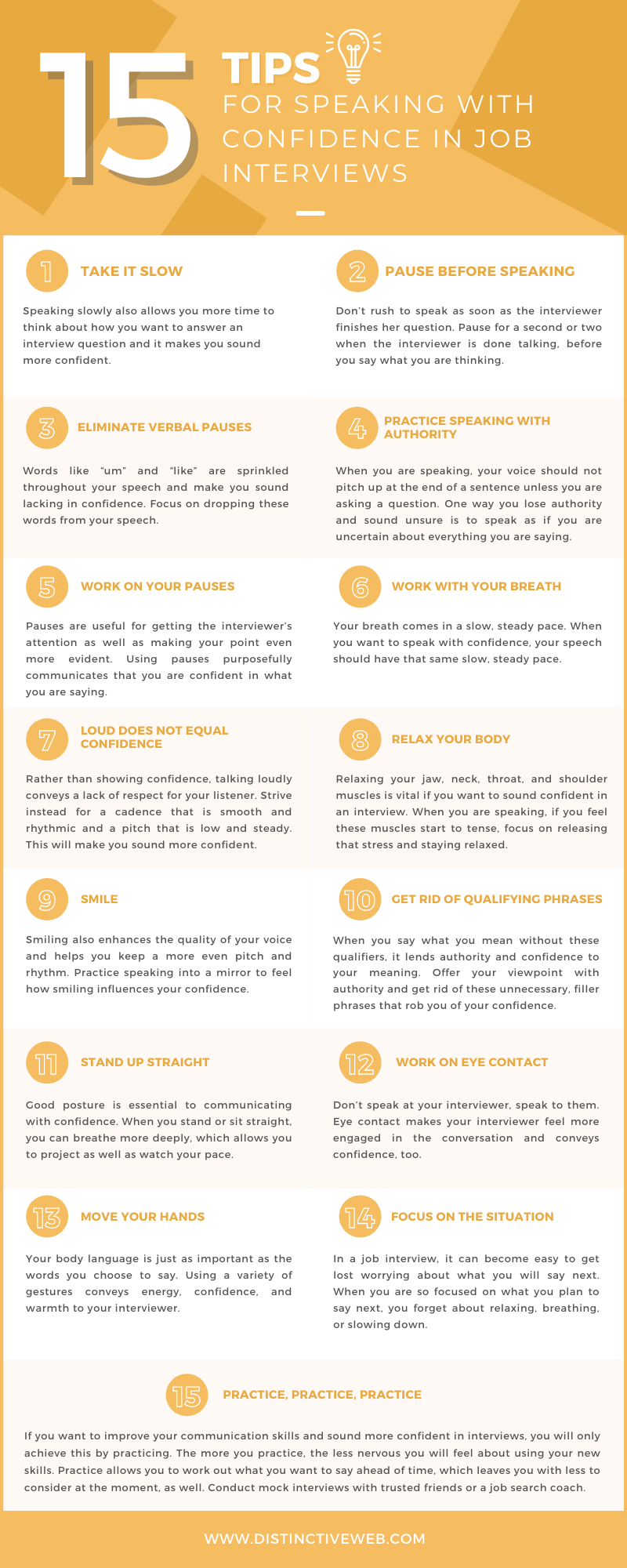
Did you know that your voice and how you speak says a lot about your self-confidence? Becoming confident in the way you communicate can help you to reach your career and job search goals while boosting your self-esteem.
Communicating confidently in job interviews is especially important. Speaking with authority and confidence informs the interviewer that you believe in yourself and that you are worthy of respect, which can change how they perceive you.
While it may seem like you are either born with confidence or not, confidence is a skill you can learn and acquire over time.
Communicating confidently in a job interview means that you talk with ease to the interviewer, listen carefully, and address the interviewer’s questions with authority and care.
Speaking confidently is not just about the words you use or the tone of your voice. It is also about your body language, such as how you stand and the way you move your body. It is also about your ability to connect with others in the room and even the way you breathe.
When you speak with confidence, the interviewer will feel at ease and believe what you are saying. When you project anxiousness or fear the interviewer will pick up on it. The more awkward you feel the more awkward the interviewer will feel for you, which means they are not really hearing what you have to say. Even if you are the most qualified of all the candidates they interview, they won’t recognize this fact. Communication breaks down when your listeners do not believe in you or in what you are saying.
Reclaim Your Personal Power by Communicating Confidently in Job Interviews
The real benefit of speaking with confidence in a job interview is that it allows you to embrace and build upon your personal power. Your words, your tone, and your boundaries while communicating are indicators of whether you are claiming and honoring your personal power.
Your personal power is your confidence, competence, and strength, which you acquire throughout your life. It is your state of mind about whether you have control over your life.
There may be ways that you are signaling to interviewers, through your speech, that you give up your personal power. Words have power, and they can either elevate or diminish you.
When you use words that diminish who you are or what you are capable of, you are giving up your personal power. This opens the door for the job interviewer to see you as less-than or inferior. Your words are the verbal embodiment of your personal power. Learning to choose your words carefully can help you feel more powerful when conversing with the job interviewer and in turn, the interviewer will see that strength in you, as well.
15 Tips for Speaking with Confidence in Job Interviews





